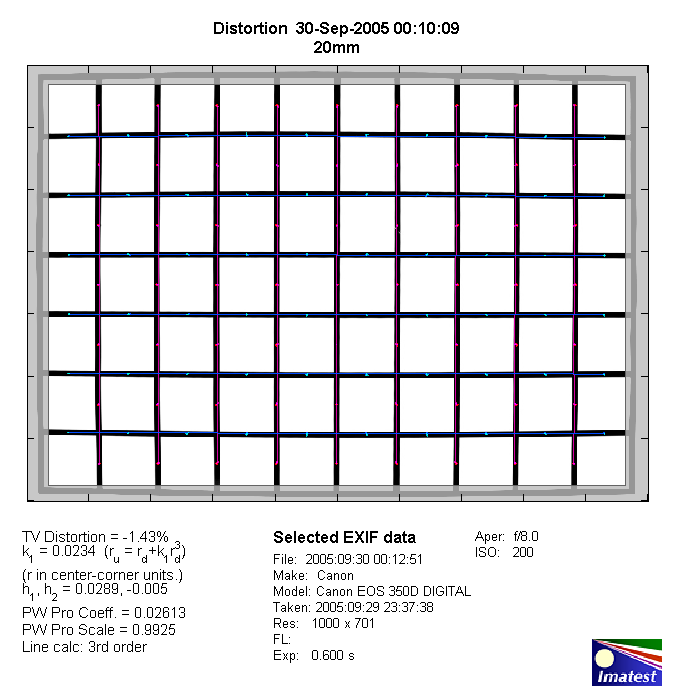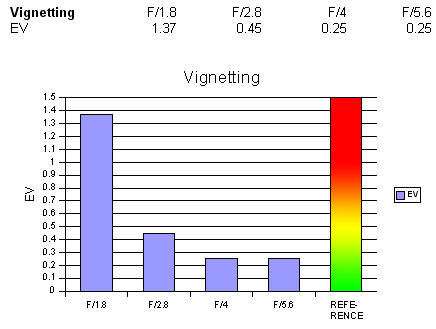|
Sigma AF 20mm f/1.8 EX - Review / Test Report - Analysis |
|
Lens Reviews -
Canon EOS (APS-C)
|
|
Page 2 of 3
Distortion
The AF 20mm f/1.8 EX showed a slight degree of barrel distortion for a lens of this
focal length. In very critical scenes this may be visible but it's better than
most zooms here.

Vignetting
Sigma claims this lens to feature "minimal light-fall-off with superior peripheral brightness".
Well, at max. aperture this isn't really true with vignetting exceeding 1EV. Here the issue can
be disturbing in some scenes. However, from f/2.8 onwards the problem is basically negligible so
it's still a very decent performance (on an APS-C DSLR).

MTF (resolution & chromatic aberrations)
The lens exhibited a varying performance in the lab but this was
to be expected from a lens exploring the extremities of lens
design.
At f/1.8 the center resolution is already quite fine but the borders
are very poor. However, at f/2.8 the performance is very
respectable and it's increasing further till f/5.6-f/8 where it
peaks in excellent center- and very good border quality.
The bad message is that the sample lens showed a rather hefty
degree of decentering resulting in a very pronounced and disturbing drop
in performance towards the right side of the image field and remember
that we're talking about the APS-C crop here. The effect was disturbing
up to about f/5.6. It was surely a specific bug in the tested sample
but we have seen this before ...
Please note that the MTF results are not directly comparable across the different systems!
Below is a simplified summary of the formal findings. The chart shows line widths per picture height (LW/PH) which can be taken as a measure for sharpness.
If you want to know more about the MTF50 figures you may check out the corresponding Imatest Explanations
Chromatic Aberrations
Chromatic aberrations (color shadows at harsh contrast transitions towards
the image borders) are quite pronounced with an average pixel
width of up to 1.5 pixels. This can be slightly disturbing in critical scenes.
As always it should be mentioned that CAs can be corrected via imaging tools.

|